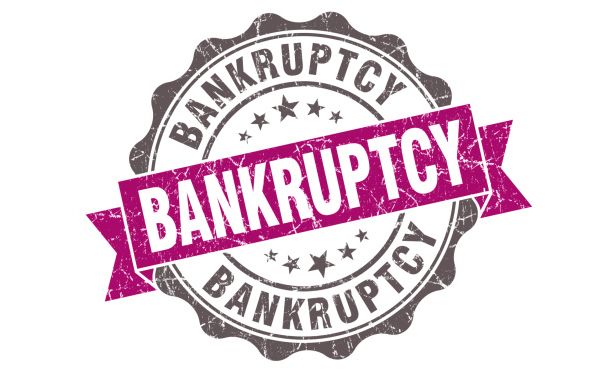Rudolph J Di Massa Jr

December 18, 2015 | The Legal Intelligencer
No Discharge of Debt Arising From Willful and Malicious InjuryPursuant to Section 727 of the U.S. Bankruptcy Code, an individual Chapter 7 debtor may receive a discharge "from all debts that arose before the date of the order for relief under this chapter." A Chapter 11 or Chapter 13 debtor may receive similar relief pursuant to Sections 1141 and 1328(b), respectively. Under any chapter, this discharge serves the Bankruptcy Code's principal goal of relieving a debtor from his or her prepetition obligations and providing the debtor with a "fresh start" on emergence from bankruptcy. Notwithstanding this goal, a bankruptcy discharge is not all-encompassing: it is limited by Section 523(a), which expressly excepts particular debts from the scope of the debtor's discharge. Among other categories, the list of nondischargeable debts includes debts arising from certain tax or customs duties, money or property to the extent obtained by fraud, domestic support obligations, and government fines or penalties. In addition, Section 523(a)(6) excepts from discharge a debt "for willful and malicious injury by the debtor to another entity."
By Rudolph J. Di Massa Jr. and Jarret P. Hitchings
6 minute read

December 18, 2015 | The Legal Intelligencer
No Discharge of Debt Arising From Willful and Malicious InjuryPursuant to Section 727 of the U.S. Bankruptcy Code, an individual Chapter 7 debtor may receive a discharge "from all debts that arose before the date of the order for relief under this chapter." A Chapter 11 or Chapter 13 debtor may receive similar relief pursuant to Sections 1141 and 1328(b), respectively. Under any chapter, this discharge serves the Bankruptcy Code's principal goal of relieving a debtor from his or her prepetition obligations and providing the debtor with a "fresh start" on emergence from bankruptcy. Notwithstanding this goal, a bankruptcy discharge is not all-encompassing: it is limited by Section 523(a), which expressly excepts particular debts from the scope of the debtor's discharge. Among other categories, the list of nondischargeable debts includes debts arising from certain tax or customs duties, money or property to the extent obtained by fraud, domestic support obligations, and government fines or penalties. In addition, Section 523(a)(6) excepts from discharge a debt "for willful and malicious injury by the debtor to another entity."
By Rudolph J. Di Massa Jr. and Jarret P. Hitchings
6 minute read

November 06, 2015 | The Legal Intelligencer
Financing Statement Filed Without Debtor's AuthorizationUnder the Uniform Commercial Code (UCC), a secured party can perfect its lien on certain of a debtor's assets by the filing of a UCC-1 financing statement.
By Rudolph J. Di Massa Jr. and Chad E. Odhner
7 minute read

November 05, 2015 | The Legal Intelligencer
Financing Statement Filed Without Debtor's AuthorizationUnder the Uniform Commercial Code (UCC), a secured party can perfect its lien on certain of a debtor's assets by the filing of a UCC-1 financing statement.
By Rudolph J. Di Massa Jr. and Chad E. Odhner
7 minute read

September 18, 2015 | The Legal Intelligencer
Attorney Fees for Defense of Fee Applications Not RecoverableCompensation for bankruptcy professionals employed in bankruptcy cases is governed by Section 330 of the Bankruptcy Code. Section 330(a)(1) of the code provides, in pertinent part, that "the court may award to ... a professional person employed under Section 327 or 1103—(A) reasonable compensation for actual, necessary services rendered." Professionals whose employment is approved by the bankruptcy court consequently must file fee applications, to be reviewed and approved by the court for work performed in the bankruptcy case.
By Rudolph J. Di Massa Jr. and Walter W. Gouldsbury III
7 minute read

September 17, 2015 | The Legal Intelligencer
Attorney Fees for Defense of Fee Applications Not RecoverableCompensation for bankruptcy professionals employed in bankruptcy cases is governed by Section 330 of the Bankruptcy Code. Section 330(a)(1) of the code provides, in pertinent part, that "the court may award to ... a professional person employed under Section 327 or 1103—(A) reasonable compensation for actual, necessary services rendered." Professionals whose employment is approved by the bankruptcy court consequently must file fee applications, to be reviewed and approved by the court for work performed in the bankruptcy case.
By Rudolph J. Di Massa Jr. and Walter W. Gouldsbury III
7 minute read

August 07, 2015 | The Legal Intelligencer
'Authority' to Terminate Financing Statements Under UCCOn Jan. 21, in Official Committee of Unsecured Creditors of Motors Liquidation v. JPMorgan Chase Bank (In re Motors Liquidation), No. 13-2187, (2d Cir. Jan. 21, 2015), the U.S. Court of Appeals for the Second Circuit addressed whether a UCC-3 termination statement, which was improperly filed as part of the repayment of an unrelated loan, may be considered effective to terminate the security interest in question, even where none of the parties intended that result.
By Rudolph J. Di Massa Jr. and Catherine B. Heitzenrater
9 minute read

August 07, 2015 | The Legal Intelligencer
'Authority' to Terminate Financing Statements Under UCCOn Jan. 21, in , No. 13-2187, (2d Cir. Jan. 21, 2015), the U.S. Court of Appeals for the Second Circuit addressed whether a UCC-3 termination statement, which was improperly filed as part of the repayment of an unrelated loan, may be considered effective to terminate the security interest in question, even where none of the parties intended that result.
By Rudolph J. Di Massa Jr. and Catherine B. Heitzenrater
9 minute read

June 19, 2015 | The Legal Intelligencer
Numerosity Requirement for Filing Involuntary Bankruptcy PetitionSection 303 of the Bankruptcy Code provides creditors with a mechanism to force a recalcitrant debtor into bankruptcy through the filing of an involuntary petition for relief. Pursuant to this section, an involuntary bankruptcy case may be commenced only under Chapter 7 or 11 of the Bankruptcy Code, and may only be brought against a person otherwise qualified to file a voluntary petition. Where the purported debtor has fewer than 12 creditors, the involuntary petition need only be filed by a single creditor. However, where the purported debtor has 12 or more creditors, the involuntary petition must be filed by at least three creditors.
By Rudolph J. Di Massa Jr. and Jarret P. Hitchings
7 minute read

June 18, 2015 | The Legal Intelligencer
Numerosity Requirement for Filing Involuntary Bankruptcy PetitionSection 303 of the Bankruptcy Code provides creditors with a mechanism to force a recalcitrant debtor into bankruptcy through the filing of an involuntary petition for relief. Pursuant to this section, an involuntary bankruptcy case may be commenced only under Chapter 7 or 11 of the Bankruptcy Code, and may only be brought against a person otherwise qualified to file a voluntary petition. Where the purported debtor has fewer than 12 creditors, the involuntary petition need only be filed by a single creditor. However, where the purported debtor has 12 or more creditors, the involuntary petition must be filed by at least three creditors.
By Rudolph J. Di Massa Jr. and Jarret P. Hitchings
7 minute read
Trending Stories
- 1Trump's SEC Overhaul: What It Means for Big Law Capital Markets, Crypto Work
- 2Armstrong Teasdale's London Creditors Face Big Losses
- 3Texas Court Invalidates SEC’s Dealer Rule, Siding with Crypto Advocates
- 4Quinn Emanuel Has Thrived in China. Will Trump Help Boost Its Fortunes?
- 5Manufacturer Must Provide Details Surrounding Expert’s Livestreamed Inspection, Fed Court Rules
More from ALM
- Legal Speak at General Counsel Conference East 2024: Match Group's Katie Dugan & Herrick's Carol Goodman 1 minute read
- Legal Speak at General Counsel Conference East 2024: Eric Wall, Executive VP, Syllo 1 minute read
- Legal Speak at General Counsel Conference East 2024: Virginia Griffith, Director of Business Development at OutsideGC 1 minute read



